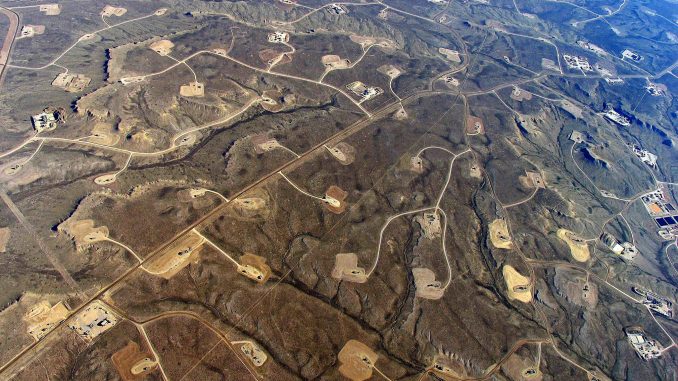

Kunal Patel, Dallas Federal Reserve, recaps their recent study which explains that activity in the energy sector deteriorated further in second quarter 2020, according to oil and gas executives responding to the Federal Reserve Bank of Dallas Energy Survey.
The business activity index—the survey’s broadest measure of conditions facing Eleventh District energy firms—fell from -50.9 in the first quarter to -66.1 in the second quarter. It was the lowest reading in the survey’s four-year history and indicative of significant contraction in activity. Exploration and production (E&P) and oilfield services firms both saw continued declines in business activity.
Production indexes suggest oil and gas production sank relative to the previous quarter. The oil production index declined sharply, falling 36 points to -62.6, according to E&P executives. The natural gas production index also fell significantly, from -21.2 to -47.8. The oil production index is at its lowest point in the survey’s four-year history.
“The impact of the coronavirus pandemic on the oil and gas industry remains severe and widespread,” said Michael Plante, Dallas Fed senior research economist. “Survey respondents reported sharp contractions in most indicators, including business activity, oil and gas production and employment.”
In a series of special questions, firms were asked if they shut in or curtailed production in the second quarter.
“A large majority of E&P firms—82 percent—shut in or curtailed some production during the second quarter, primarily due to low oil and natural gas prices,” Plante said. “Many of those respondents were still holding back production at the time of the survey. Most report that their production will be back online by September and potentially sooner.”
The survey also asked industry executives when they expect global oil consumption to return to pre-COVID-19 levels.
“Few respondents expect global oil consumption to return to pre-COVID-19 levels in the immediate future, with only 5 percent of respondents believing it will be back to normal by fourth quarter 2020,” Plante said. “Almost 60 percent believe consumption will have returned to normal by fourth quarter 2021.”
Other survey highlights include:
E&P and oilfield services firms continued to cut capital spending. The index for capital expenditures for E&P firms declined from -49 in the first quarter to -66.1 in the second, indicating a further reduction in capital spending. Additionally, the index for capital expenditures for oilfield services firms declined from -50 to -73.5.
Conditions deteriorated further for oilfield services firms. The equipment utilization index fell from -47.2 in the first quarter to -69.2 in the second, a survey low. The operating margins index dropped from -50 to -68.6. While firms found relief as input costs collapsed—that index fell from -11.3 to -50—the index of prices received for services also slid further into negative territory, from -37.7 to -64.7.
Employment continued to contract. The aggregate employment index posted a fifth consecutive negative reading, declining from -24 to -46.1, which suggests an acceleration in job cuts. Additionally, the aggregate employee hours worked index dropped from -32.1 to -47. The index for aggregate wages and benefits fell further into negative territory, from -8.2 to -41.7.
Company outlooks remained negative and uncertainty looms. The company outlook index reading improved but remained deeply negative at -51 in the second quarter, indicating outlooks deteriorated. While uncertainty remained elevated, slightly fewer firms noted rising uncertainty this quarter than last, and the aggregate index fell 28 points to 35.7.
The survey samples oil and gas companies headquartered in the Eleventh Federal Reserve District—Texas, southern New Mexico and northern Louisiana. Many have national and global operations.
Data were collected June 10–18, and 168 energy firms responded. Of the respondents, 115 were exploration and production firms, and 53 were oilfield services firms.
Next release: Sept. 23, 2020
Kunal Patel is a business economist at the Federal Reserve Bank of Dallas. As a member of the Research Department’s energy group, Patel analyzes and investigates developments and topics in the oil and gas sector. He is also heavily involved with the production of the Dallas Fed Energy Survey and is an organizer of the annual Dallas Fed–Kansas City Fed energy conference.
Before joining the Dallas Fed in 2017, Patel worked in a variety of energy-related positions at Luminant, McKinsey and Co. and Bank of America Merrill Lynch. Patel received a bachelor of business administration from the Business Honors Program at the University of Texas at Austin and an MBA in finance from the University of Texas at Dallas.
The Crude Life Podcast can be heard every Monday through Thursday with a Week in Review on Friday.
Spread the word. Support the industry. Share the energy.

